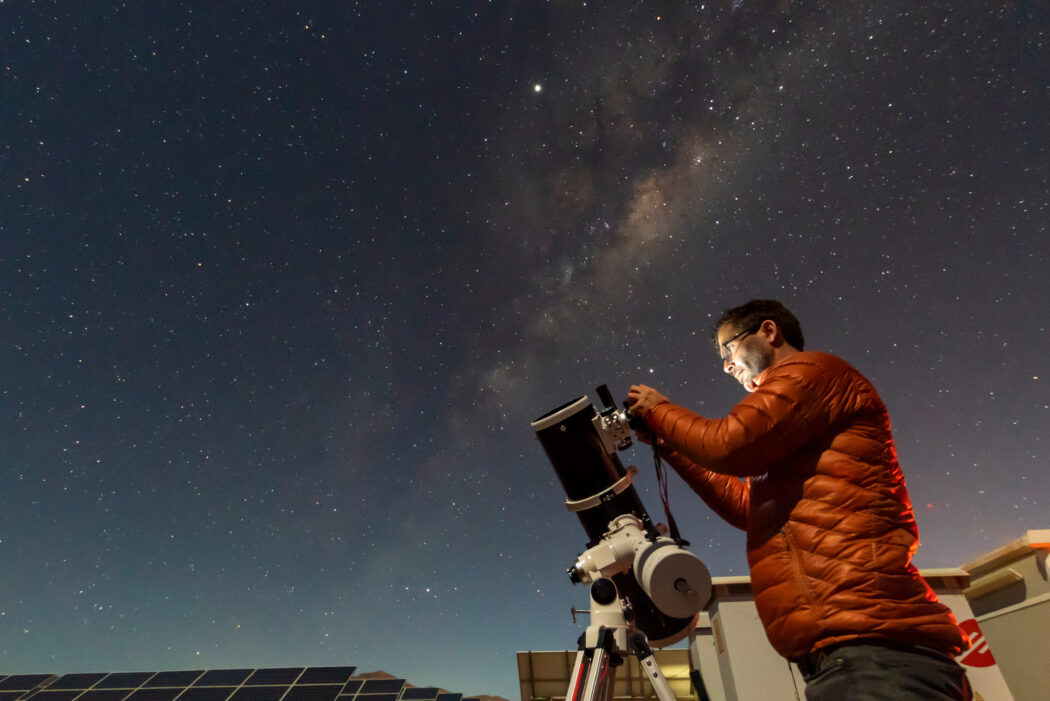Since it was initially released in 1927, the Strong Interest Inventory (SII) has helped guide tens of thousands of job seekers toward the careers of their dreams. The Strong Interest Inventory works through a two-step process. First, job seekers take a comprehensive, multi-faceted assessment that measures their preferences and proclivities in several areas, including workplace environment structure, specific subjects, level of independence, and more. Then, the Strong Interest Inventory matches the analysis of a particular job seeker’s responses against a database of responses from thousands of professionals already working in those careers. For example, job seekers whose answers are more similar to scientists than teachers will be directed towards the former career rather than the latter. In addition to recommending specific careers, the SII also identifies one or more of six different career categories (Realistic, Investigative, Artistic, Social, Enterprising, and Conventional), which might be particularly well suited. One of the reasons Astronomers, for instance, is considered an Investigative career is that it involves collecting and analyzing data in regard to the scientific observation that can promote learning and understanding of how the stratosphere operates. This is in line with those who fall into the Investigative Theme who are usually curious, intellectual, and have a strong scientific inclination.

Utilize The Strong Interest Inventory to find your best-fit Career
Astronomers typically hold research and teaching positions at universities or research institutions. As such, their responsibilities may include teaching classes, mentoring graduate students or junior colleagues, and other miscellaneous organizational functions that their institution requires, such as serving as a Department Head or screening potential students or professors. To fulfill these responsibilities, Astronomers may need to be familiar with their university and department policies and practices.
However, the core of their interest is often research-based. Astronomers study the cosmos by collecting data from telescopes and other scientific instruments, both on Earth and in space. Their data can take many forms, including but not limited to invisible radiation (e.g., x-rays or gamma rays) from extraterrestrial sources. In some cases, Astronomers may need to develop new instruments to collect and analyze the necessary data. Once their data analysis is complete, Astronomers publicize their work by sharing their findings at scientific conferences or in papers published in scientific journals. In some cases, they may also need to simplify their results so they can be presented to the public.
Because of the vastness of this undertaking, most research is conducted collaboratively with other scientists. Data is often shared via the internet. Astronomers must also secure funding for their research, typically by raising funds from donors or applying for research grants from the government or private institutions. Additional professional responsibilities may include reviewing proposals, serving on panels, and organizing conferences.
Skills, Education, and Required Knowledge
Becoming an Astronomer requires increasingly technical expertise. In addition to standard office software (i.e., Microsoft Office Suite) for building presentations or drafting papers, Astronomers must also be proficient users of statistical software (e.g., SPSS, SAS), database management software (e.g., Apache Hadoop), programming languages (e.g., structured query language, SQL), and graphics software (e.g., IRIS). They must also be able to learn to use any other software required by their specific organization. In addition to this software, Astronomers also need to use different tools, including spectrometers, spectroscopes, binoculars, ionization chambers, evaporators, polarizers, telescopes, and more. Again, learning ability is essential, as these technologies are constantly evolving.
To be successful, Astronomers need to have extensive knowledge of many technical fields, including Mathematics, Physics, Electronics, Technology, and Engineering. They also need to be proficient communicators in written and spoken English and any other relevant languages to facilitate the communication of their work with other professionals. Depending on their specific area(s) of expertise, Astronomers may also benefit from proficiency in Chemistry or other sciences. Almost all Astronomers hold advanced degrees. Over 64% have a post-doctoral certification, and 23% have a Ph.D. as their most advanced degree. Just 5% hold only a Bachelor’s degree.
Salary and Pay
The median salary for Astronomers in the United States is $119,730 per year, which comes to $57.56 on an hourly basis. That said, the range is very wide depending on location. Astronomers in California, for instance, earn an average of $170,000 annually, with 10% earning almost $210,000 per year, while those in New Mexico early a startling $72,000 per year. New York and other mid-Atlantic states fall squarely between these, with averages closer to the national average. Employment is relatively low, with just 2,100 Astronomer positions across the country and projected growth of just 1-5% (below average) in the next decade. This low growth is most likely because most Astronomers are employed by universities or research institutions with a fixed budget.
Below are some employment trends for Astronomers:
- Median Salary: $119,730 annually
- Employment: 2,100 employees
- Projected growth (2020-2030): Slower than average (1-5%)
- Projected job openings (2020-2030): 200
Visit Our Strong Interest Inventory® Resource Page
Visit Our Myers-Briggs Type Indicator® Career Resource Database for Information on MBTI® Personality Type Careers
Click on one of these to access more Investigative Theme Code Careers: Aerospace Engineers and Technicians, Bicycle Repairs, Biochemical Engineers, Chemical Technicians, Chemists, Computer System Analysts, Construction Carpenters, Coroners, Critical Care Nurses, Dental Lab Technician, Dermatologists, Diagnostic Medical Sonographers, Emergency Medical Technicians, Explosives Workers and Blasters Assistants, Fire Investigators, Forensic Science Technicians, Industrial Engineering Technicians, Intelligence Analysts, Marine Engineers and Naval Architects, Mechanical Engineers, Operations Research Analysts, Optometrists, Political Scientists, Quality Control Analysts, Software Applications Developers, Software Quality Assurance Analysts and Testers, Sports Medicine Physicians, Structural Iron and Steel Workers, Systems Software Developers, and Urban and Regional Planners.
To Learn More About the Myers-Briggs Type Indicator, visit our About MBTI Test Page
Gain access to your best-fit careers, occupational preferences and interests with these career based Strong Interest Inventory® Assessments:
-
MBTI® Career Report + Strong & MBTI Combined Career Report + Strong Profile
Price: $96.95 Buy NowDIGITAL DELIVERY
- Three of the top career-focused tests included
- Designed to uncover the best career fit for your true self
- Links to complete assessments are sent digitally via email within 2-3 business hours of purchase
- Results sent in PDF form via email within 6-8 business hours
Download Sample MBTI® Career Report
Download Sample Strong & MBTI® Combined Career Report Plus Strong Profile
Download Sample Strong Interest Inventory® Profile Report
-
Strong Interest Inventory® Interpretive Report
Price: $64.95 Buy NowDIGITAL DELIVERY
- This report starts with the same foundation as the Strong Interest Inventory Profile but goes even further into analyzing your likes and dislikes and how that can help you lead a more fulfilling, satisfied life
- Dive deeper into what your interests, hobbies, favorite topics, and vocations could mean for your career and personal life
- Links to complete assessments are sent digitally via email within 2-3 business hours of purchase
- Results sent in PDF form via email within 6-8 business hours
Download sample Strong Interest Inventory® Interpretive Report
-
Strong Interest Inventory® Profile
Price: $54.95 Buy NowDIGITAL DELIVERY
- Set yourself up for success by choosing a career that reflects your personal interests, preferences, likes, and dislikes
- This test compares your preferences against professionals actively in specified industries, rather than basing results on theory alone
- Links to complete assessments are sent digitally via email within 2-3 business hours of purchase
- Results sent in PDF form via email within 6-8 business hours
-
Strong Interest Inventory® & Skills Confidence Profile + Strong Interpretive Report
Price: $72.95 Buy NowDIGITAL DELIVERY
- Better understand your strengths, interests, preferences, and areas of confidence
- Connect your innate traits to a successful and satisfying career
- Links to complete assessments are sent digitally via email within 2-3 business hours of purchase
- Results sent in PDF form via email within 6-8 business hours
Download sample Strong Interest Inventory® & Skills Confidence Profile + Strong Interpretive Report
-
iStartStrong™ Report
Price: $39.95 Buy NowDIGITAL DELIVERY
- Plan your future career based on your interests and passion
- Start on the right path to finding a career that you’ll enjoy for years to come
- Links to complete assessments are sent digitally via email within 2-3 business hours of purchase
- You will be able to self-download your report as a PDF document immediately following the completion of your assessment.
Explore our Strong Interest Inventory® Blog Pages:
- Strong Interest Inventory Realistic Theme Explained
- Strong Interest Inventory Artistic Theme Explained
- Strong Interest Inventory Investigative Theme Explained
- Strong Interest Inventory Social Theme Explained
- Strong Interest Inventory Enterprising Theme Explained
- Strong Interest Inventory Conventional Theme Explained
Assessment Categories
References
- Bureau of Labor Statistics wage data and 2012-2022 employment projections Onetonline.org














